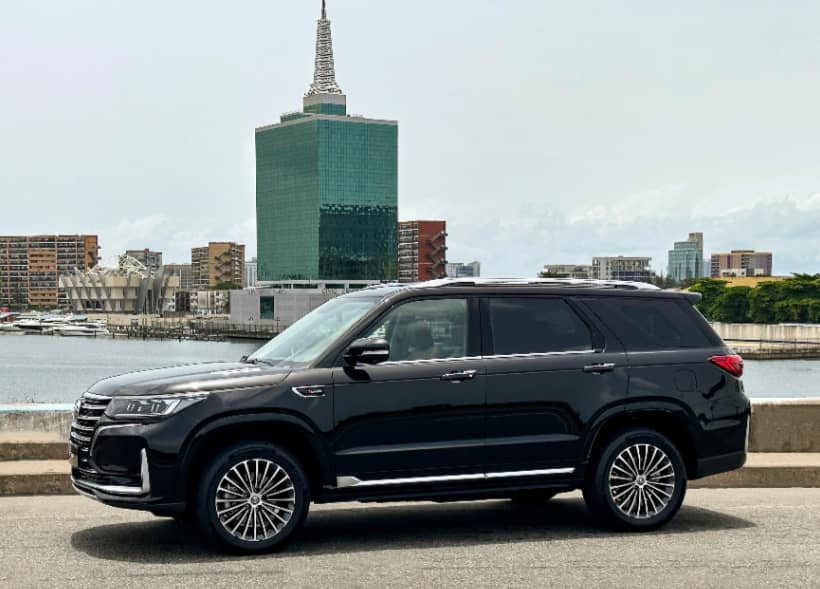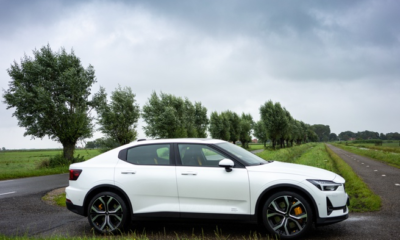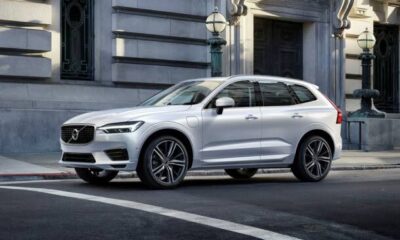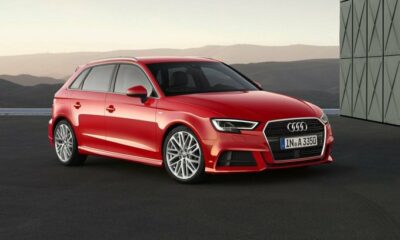AUTO STAKEHOLDER
Disruptions stir Nigeria’s auto market as Chinese brands dominate

According to the United Nations COMTRADE database on international trade, automobiles are the third most imported items in Nigeria, accounting for 6.6 percent of the country’s imports and no doubt one of Africa’s largest auto markets.
Since the 1970s, a variety of foreign brands have dominated Nigeria’s auto industry, with European, Japanese and subsequently Korean brands competing heavily for Nigeria’s burgeoning market share.
These brands were familiar to and trusted by the Nigerian market, until very recently, when the newest kids on the block, Chinese automobiles, made a fierce entry and are rapidly penetrating the market; and not just in Nigeria, they are taking over on a global scale.
A recent report by BBC News declares boldly that “China has overtaken Japan in the first three months of 2023, with official figures showing that China exported 1.07 million vehicles within Q1 of 2023, a 58 percent jump from Q1 2022, compared to Japan’s exports of 954,185, representing a 6 percent increase to their Q1 2022 figures”.
Nigeria is certainly not exempt from this takeover. The Chinese brands have made attempts in the past to penetrate the Nigerian market, Geely Auto had a trial run about a decade ago with limited success, and GAC followed thereafter, making slow, but calculated progress in the market.
Now, even more brands have arrived and in grand style. These brands have successfully altered the Nigerian auto scene. Sleek designs, hi- tech modern technologies, and impressive performance preceded by positive reviews in existing markets coupled with aggressive marketing efforts have pushed these brands into the mainstream market.
The Nigerian auto industry is witnessing a not- so- subtle yet highly significant evolution. On the streets of major cities, more sedans, pickups, and trucks are being spotted with the logos of Chinese automakers.
Several driving forces have influenced the rise of the Chinese automotive brands in Nigeria, with a major one being a huge shift in perception about the quality, safety, and reliability of the cars.
In the past few years, Chinese automakers have made strategic alliances with major legacy brands such as GM, Ford, Mercedes- Benz, etc, adopting their skills and infusing them into the design and manufacturing processes, thereby gaining the trust of customers in various markets such as Russia, the Middle East, Africa and even in the EU.
This was beneficial, as Chinese automakers have emerged as global leaders in automobile manufacturing, shifting their focus from the production of budget-friendly compact cars to embracing a diverse array of vehicle categories and market segments
These strategic partnerships coupled with heavy investments in research and development (R&D) to improve their designs, engineering, and processes have contributed to this upsurge in quality and appeal.
The result of their hard work is evident with the premium quality luxury vehicles they now churn out at a rapid rate. These factors have not only elevated the quality and technology standards of Chinese vehicles but have also positioned Chinese brands as serious contenders in the global automotive space.
Another element that has contributed to the growth of Chinese automotive brands in Nigeria, can be attributed to the astronomical Nigeria-China trade volumes, which cut across different segments, from mobile phones to civil engineering to automobiles; Chinese vehicles are now contributing a huge share to that value, as they are emerging as a common choice for Nigerians.
The affordability of these vehicles; in light of the recent economic downturn, makes them a top preference for cost-conscious Nigerians, as they offer a practical and cost-effective option to own an automobile without breaking the bank.
When compared to ‘used’ cars from other countries, Chinese cars gain preference in view of a potential buyer. With these cars, they get the security and pride of owning a new car, have access to more advanced features, and have access to original car parts when the need arises.
Long term warranties have also been used to make purchasing these vehicles even more attractive, with the current longest warranty in the market coming from Mikano Motors, franchisee owners of Changan, with a hefty six- year/ 200,000 km, whichever comes first- warranty.
In order to tap into the potential within the Nigerian market, several Chinese auto manufacturers have entered into partnerships with key industry players in the local automotive sector that are now embracing the hitherto neglected Chinese brands.
Engagements with companies such as Toyota, Mikano Motors, Jetour, Nord, and Innoson Motors have resulted in significant operational and commercial advancements, with brands aligning with market leaders to position themselves for a higher market share.
Disruptions in the Nigerian Autoscape itself this year saw long- term partners; Elizade and Toyota, part ways, with Toyota now pitching camp with CFAO as its new Nigerian distributor. Elizade Motors, the primary distributor for the Chinese JAC, has also added Jetour to the list of Chinese brands in its kitty.
Changan Auto departed Stallion to join Mikano Motors, joining Maxus, Geely and ZNA (four brands from the top 5 Chinese Automakers); even though things have been quiet with the Geely brand and speculations are swirling about a potential move by Geely to another yet- unnamed dealer. Now, more than ever, the competition in the Nigerian auto industry is looking tough, and the customer stands to benefit from this as the brands jostle to outdo one another.
Reflecting on these industry shifts and transformations, it is clear that both established players and new entrants in Nigeria’s automotive sector are embracing the competitive landscape.
Emergence of Chinese brands, combined with strategic distribution and partnership moves, has set the stage for dynamic competition, benefiting Nigerian consumers with a wide range of options to choose from and driving industry advancements.
The road ahead is a rapidly evolving market that promises to be challenging yet promising, with a plethora of opportunities awaiting those who are able to navigate it skilfully.
TOCHUKWU NWOSU
-

 AVIATION5 years ago
AVIATION5 years agoPhoto News: Air Peace commence flight operations to South Africa
-

 Car News5 years ago
Car News5 years agoPolestar is recalls over 2000 electric cars due to software bug
-

 Technology5 years ago
Technology5 years agoCommon mistakes in CO₂ emissions calculations
-

 RAIL4 years ago
RAIL4 years ago36 Killed in Pakistan Train Accident
-

 Business5 years ago
Business5 years ago2016 Volvo XC60 review and specifications
-

 Reviews5 years ago
Reviews5 years ago2021 Audi A6 Specifications and Review
-

 SAFETY / CAR CARE5 years ago
SAFETY / CAR CARE5 years agoHandbrake warning light; what it means and what to do
-

 NEWS4 years ago
NEWS4 years agoFG To Spend ₦900 Billion On Fuel Subsidy In 2022
